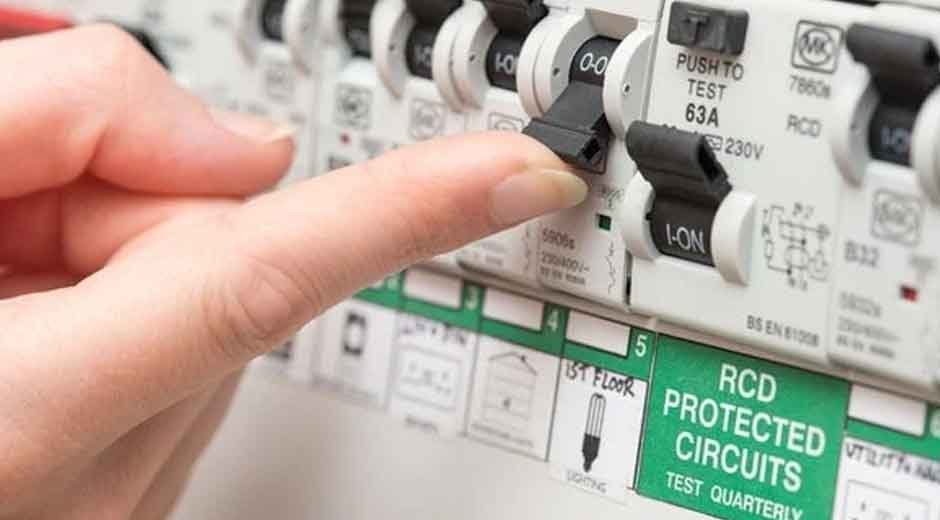You’re just doing something normal—like making toast or turning on the microwave—and suddenly, everything shuts off. The lights go out, the TV dies, and you’re left standing there wondering what just happened. Then someone says, “The power tripped.”
It sounds kind of dramatic, like something broke. But it’s actually your house trying to protect itself. When power trips, it’s doing exactly what it’s supposed to do. And even though it’s annoying, it’s usually a good thing. Here’s what’s really going on.
Your House Isn’t Just Plugged In—It’s Managed
Electricity isn’t just one big wire going through your home. It’s split into smaller parts, called circuits. Each circuit powers a certain area or group of things, like the kitchen, living room, or bathroom lights.
All these circuits are connected to something called a switchboard or circuit breaker box. That’s usually a gray metal box tucked away somewhere—maybe in the laundry, garage, or hallway. Inside, there are switches (called breakers) that control how much power flows through each circuit.
When one of those switches flips off, that’s what we call “the power tripping.”
Why Power Trips in the First Place
Your house has limits. Each circuit can only handle a certain amount of electricity. If too much stuff is plugged into the same line—like a toaster, kettle, and microwave all at once—it puts extra pressure on that circuit. That can make it overheat or become unsafe.
To stop anything dangerous from happening (like melted wires or a fire), the breaker shuts off the power. It’s like your house saying, “Nope, too much, let’s stop this before something goes wrong.”
But it’s not just about too many appliances. Other things can cause power to trip too:
- A faulty device: Like an old iron or cracked power cord.
- Water getting where it shouldn’t: Like in outdoor outlets or bathroom lights.
- Wiring issues: Like something coming loose in the wall or behind a power point.
If it keeps happening and you’re not sure why, that’s when it’s smart to get a professional involved. Electricians from places like Easy Cool Air & Electrical can figure out what’s actually going on behind the scenes—and fix it safely.
What Happens Inside the Switchboard
Imagine electricity like water going through pipes. If too much water pushes through, the pipes might burst. But instead of bursting, your electrical system has a kind of “valve” that shuts it off—fast.
When power trips, the breaker switch flips into the “off” position. It completely stops the electricity from flowing through that circuit. That’s why everything goes dark or silent in that part of the house. Once you reset the breaker (by flipping the switch back), the circuit starts working again—if the problem is gone.
But if it trips again right away, something’s definitely wrong.
The Most Common Causes
Here are some of the usual things that make power trip:
- Overloaded circuits: This is the big one. Too many high-power things on one outlet or circuit can overload it. Think about running the air fryer, toaster, and kettle all at once in the kitchen.
- Short circuits: This happens when a live wire touches a neutral wire. It creates a sudden surge of power that the breaker immediately shuts off.
- Appliance faults: Old or damaged appliances can leak electricity or cause a short. You might not even know there’s a problem until it trips the power.
- Water or moisture: Bathrooms, kitchens, and outdoor areas are more likely to have this issue. Water and electricity never mix well, so breakers are extra sensitive in these spots.
- Wiring problems: Sometimes it’s not the appliance—it’s the wiring in the wall. Loose connections or damaged wires can trip breakers over and over again.
What You Can Do About It
The first thing people usually do is head straight to the switchboard to flip the breaker back on. That’s fine—but only if it doesn’t trip again right away.
If it does keep tripping, unplug anything you were just using. Try resetting the breaker again. If it works this time, you’ve probably found the problem. That appliance might need fixing or replacing.
But if the power keeps cutting off even with everything unplugged, don’t keep flipping it back on. That’s a sign something deeper is going on. You’ll need an electrician to check it properly. Keep in mind, electrical stuff inside walls or near water isn’t something you should mess with yourself.
How to Avoid It in the Future
You can’t stop every power trip, but you can make them less likely:
- Spread out your appliances: Don’t plug everything into one outlet, especially high-power stuff like kettles, air fryers, or heaters.
- Replace old cords and plugs: If something sparks, buzzes, or smells weird, stop using it.
- Keep outlets dry: Especially in bathrooms, kitchens, or outside areas. Make sure everything is sealed properly and outlets are protected.
- Don’t ignore flickering or buzzing: If your lights blink or your outlets feel warm, that’s a sign something’s off.
- Get a regular check-up: Especially if your house is older. Wires wear out just like anything else.
Some Trip Switches Are More Sensitive (And That’s a Good Thing)
Modern homes usually have RCDs (Residual Current Devices), which are super sensitive safety switches. They’re designed to cut power even faster if there’s a risk of electric shock. You’ll usually find these in newer switchboards or in homes that have had updates done.
They’re a bit more sensitive than old-school breakers, but that’s not a bad thing. It just means they’re working harder to protect you. If an RCD keeps tripping, it might be reacting to a small leak in an appliance or an issue in the wiring. Again—worth getting checked.
The Main Thing to Remember
Power tripping might seem like a hassle, but it’s not random. It’s your home protecting itself—and you. Whether it’s a faulty toaster or a water leak in the bathroom light, the circuit breaker is doing its job by shutting off the power before things get worse.
Knowing what causes it helps you spot small problems before they become big ones. And if something feels off or keeps happening, don’t guess. It’s always better to have a licensed electrician check it out and make sure your house is running safely.
Electricity isn’t something to be afraid of—but it is something to respect.










